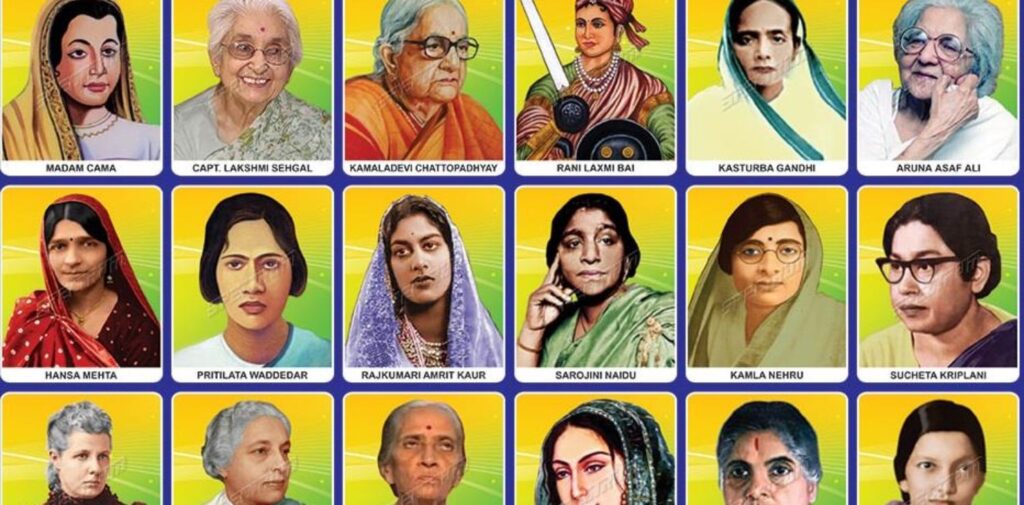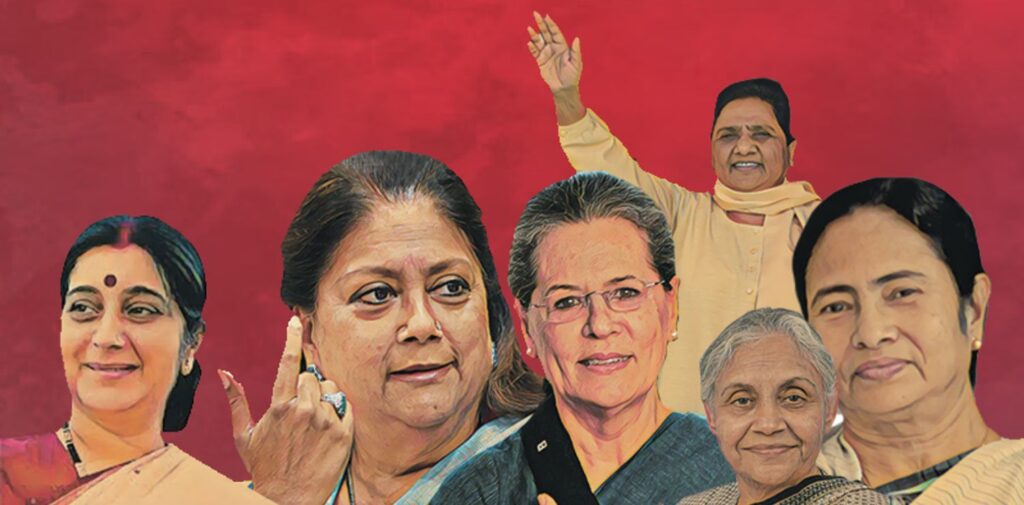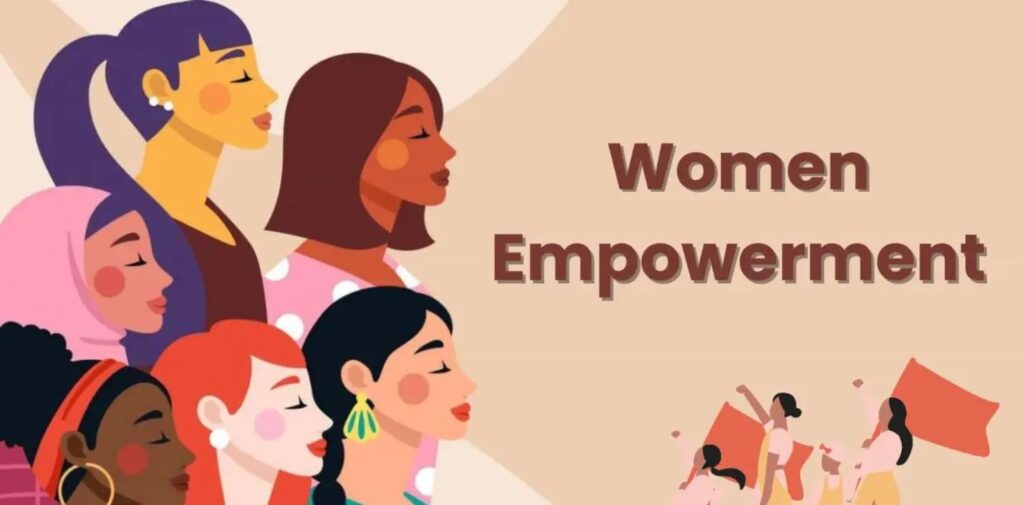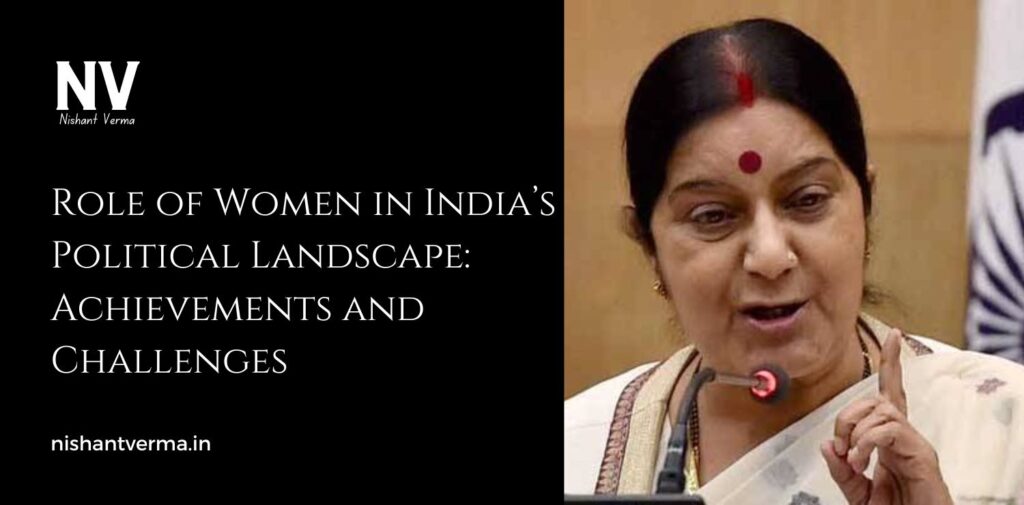India is a country with a rich history and diverse cultures, and over the years, women have played an important role in its political landscape. From fighting for independence to holding powerful positions in government, women in India have worked hard to make their voices heard in politics. While there have been many achievements, there have also been many challenges that women face in politics.
In this article, we will look at the important role of women in Indian politics, their achievements, and the challenges they still face. We will understand how women have shaped India’s political scene, both in the past and today.
The Early Struggles of Women in India’s Politics
Before India became independent in 1947, women were not seen as equals in many parts of society. They faced many restrictions, and their roles were limited to household duties. However, during the Indian freedom struggle, many women became leaders and participated in the fight against British rule. These women showed that they were strong, brave, and capable of taking on important roles in society.
One of the most famous women leaders during the independence movement was Sarojini Naidu. Known as the “Nightingale of India,” Sarojini Naidu was a poet and an active participant in the freedom struggle. She became the first woman to become the president of the Indian National Congress and later became the first woman to serve as a governor in independent India.
Other women, such as Kasturba Gandhi (wife of Mahatma Gandhi), Aruna Asaf Ali, and Begum Hazrat Mahal, also played important roles in the independence movement. They inspired future generations of women to become leaders in politics and society.

Women in Post-Independence Indian Politics
After India gained independence in 1947, women’s roles in politics began to change. Although many women became involved in social and political work, there were still many barriers to women’s full participation in politics.
One of the first major milestones for women in Indian politics came in 1966 when Indira Gandhi became the Prime Minister of India. She was not just a powerful woman leader; she was one of the most important leaders in the history of India. Indira Gandhi showed the world that women could lead countries and make tough decisions. She served as Prime Minister for over 15 years and played a key role in shaping modern India.
Her leadership proved that women had the power to be successful in politics. After her time, many other women entered politics, but her journey was still a landmark moment for women in India.
Achievements of Women in Indian Politics
Over the years, women in India have made several significant achievements in the political arena. Some of the most important milestones include:
- Indira Gandhi’s Leadership: As mentioned, Indira Gandhi became the first woman Prime Minister of India. She led the country through difficult times and was known for her strong decisions. Her leadership was a huge step forward for women in Indian politics.
- Women in Parliament: India has seen many women who have served as Members of Parliament (MPs). Today, there are several women politicians who hold powerful positions in the government. For example, Sushma Swaraj, who served as the Minister of External Affairs, was a respected leader. She was known for her diplomatic skills and her efforts to help Indian citizens around the world.
- State Leadership: Many states in India have had female Chief Ministers. Jayalalithaa in Tamil Nadu and Mamata Banerjee in West Bengal are two examples of women who have been elected to lead their states. These women have broken barriers and shown that women can also govern entire regions successfully.
- Women’s Reservation in Politics: The Indian government has made efforts to give women more chances to be involved in politics. In 1993, the government introduced a law to reserve one-third of the seats in local elections (like Panchayats and Municipalities) for women. This meant that more women could run for office and have a voice in local decision-making. This reservation system has helped many women enter politics who might not have had the chance otherwise.

Challenges Faced by Women in Indian Politics
Despite these achievements, women in India still face several challenges in politics. Some of the main challenges are:
- Gender Discrimination: In many parts of India, women still face discrimination when it comes to politics. Even though women have the right to vote and run for office, many people believe that politics is a “man’s job.” This belief can stop women from participating in politics or even discourage them from running for office.
- Limited Representation: Although women make up about half of India’s population, they are still underrepresented in the Indian Parliament. For example, only about 14% of the total seats in the Lok Sabha (the lower house of Parliament) are occupied by women. This means that the voices and concerns of women are not fully represented at the national level.
- Violence and Threats: Women politicians often face threats and violence, which makes it difficult for them to do their work. Many female politicians in India have faced intimidation, harassment, or even physical attacks because of their gender. This kind of violence prevents many women from fully participating in politics.
- Balancing Family and Politics: In India, women are often expected to take care of the home and family while also managing their careers. This is especially difficult for women in politics, where the demands of the job can be very high. Balancing family responsibilities with the pressures of a political career is a challenge that many women face.
- Lack of Financial Resources: Politics often requires money for campaigning, advertisements, and other expenses. Women politicians often face difficulties in raising funds for their campaigns, especially in a society where women have limited access to financial resources.

The Way Forward: Empowering Women in Politics
To create a more inclusive and fair political system, it is important to address the challenges women face in politics. Here are some ways to empower women and help them play a bigger role in India’s political landscape:
- Increasing Women’s Representation: More efforts need to be made to ensure that women have equal representation in Parliament and state assemblies. The Women’s Reservation Bill, which aims to reserve 33% of the seats in Parliament for women, has been discussed many times, but it has not yet been passed. If this law is passed, it will help increase the number of women in politics.
- Supporting Women Politicians: It is important to support women in politics by providing them with financial resources, protection from violence, and equal opportunities. Political parties should encourage women to run for office and provide them with the support they need to succeed.
- Educating and Raising Awareness: To change the mindset of society, we need to educate people about the importance of women in politics. Schools and communities should teach children about the role of women in politics and inspire young girls to dream big and become leaders.
- Mentorship and Training: Women who are already in politics can mentor and support younger women who are interested in joining politics. Training programs can also help women develop the skills needed to succeed in politics.
Conclusion – Women in India Political
Women have made remarkable contributions to India’s political landscape, from leading the country as Prime Ministers to helping shape policies that benefit everyone. However, challenges such as gender discrimination, limited representation, and violence still exist, making it harder for women to thrive in politics.
To build a fair and equal political system, it is important to continue empowering women, increasing their representation, and providing the necessary support. With the right efforts, women in India can play an even bigger role in shaping the future of the country. The more women are involved in politics, the stronger and more diverse India will become.




